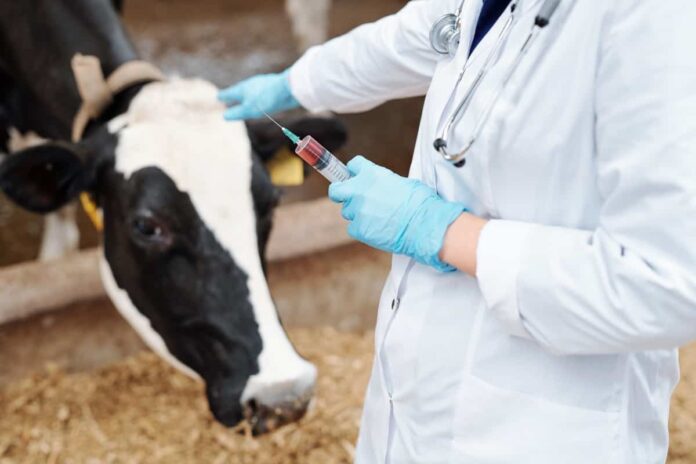Implementing Mobile Veterinary Units in India is revolutionizing animal healthcare in various states. These units, often called “veterinary clinics on wheels,” are pivotal in reaching remote and underserved areas, ensuring that livestock and pets receive essential medical attention. These mobile units are equipped with state-of-the-art facilities and staffed by trained veterinarians.
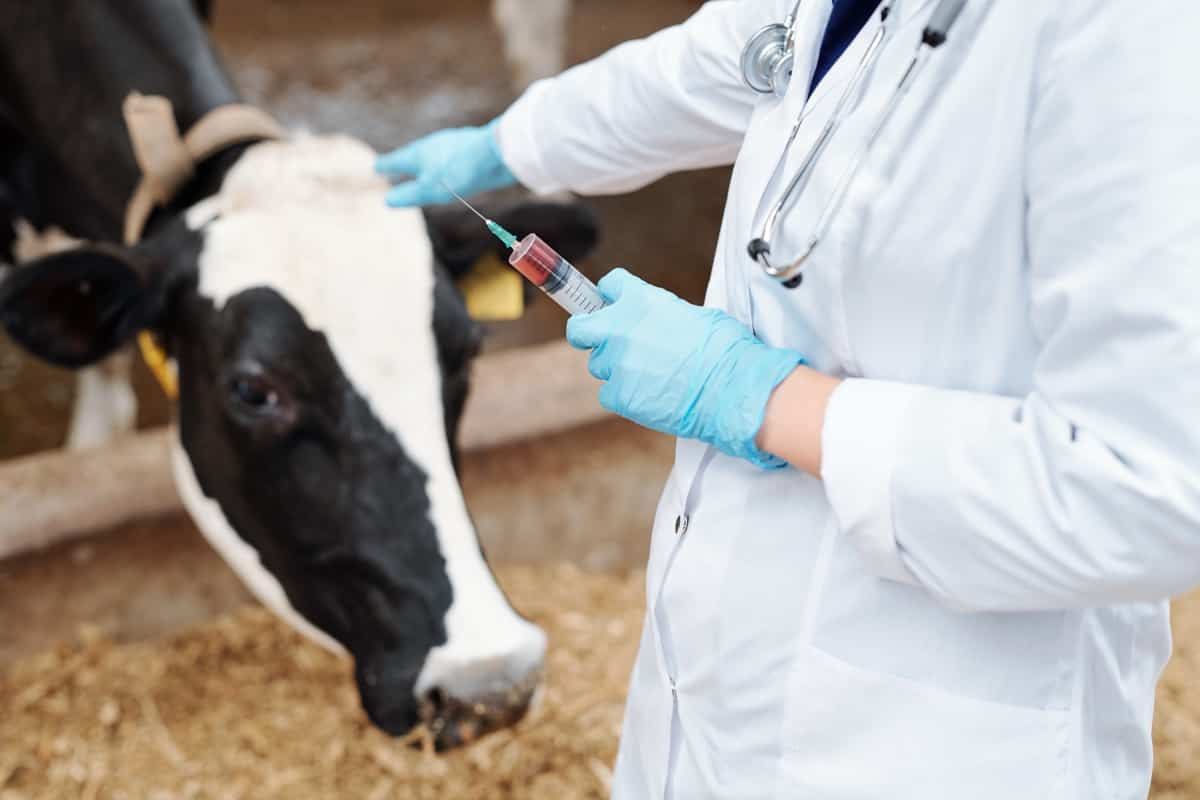
Their mission is to provide medical care to animals and educate communities on proper animal husbandry practices. This innovative approach not only improves animal well-being but also supports the livelihoods of countless farmers and herders.
What Are Mobile Veterinary Units in India?
Mobile Veterinary Units (MVUs) in India are specialized vehicles that provide veterinary healthcare services in remote and underserved areas. These units are part of the “Livestock Health & Disease Control program” by the Ministry of Fisheries, Animal Husbandry & Dairying. MVUs aim to improve animal health by offering prophylactic vaccinations, disease surveillance, and strengthening veterinary infrastructure.
They are customized with diagnostic equipment, treatment facilities, and audio-visual aids. Farmers can request services through a Call Centre, and MVUs are strategically stationed to reduce travel time. The scheme provides financial assistance for MVU procurement and covers recurring costs, ensuring essential veterinary services reach farmers’ doorsteps nationwide.
Enhancing Animal Healthcare: Mobile Veterinary Units in India
The “Livestock Health & Disease Control program” implemented by the Department of Animal Husbandry and Dairying & Ministry of Fisheries focuses on enhancing animal health through various strategies. One integral component of this scheme is establishing and strengthening Veterinary Hospitals and dispensaries – Mobile Veterinary Unit (ESVHD-MVU). The core objective of this initiative is to bring veterinary services directly to farmers’ doorsteps through Mobile Veterinary Units (MVUs).
In case you missed it: Dairy Entrepreneurship Development Scheme in India: DEDS Benefits, Eligibility, and How to Apply

Under this scheme, funds are allocated to states and union territories to establish MVUs, with approximately one MVU provided for every one lakh livestock population. These MVUs are specialized vehicles equipped with diagnostic tools, treatment facilities, audio-visual aids, and other essentials for animal care. Farmers can request veterinary services by contacting a designated Call Centre.
Strategic positioning of MVUs minimizes travel time, ensuring timely service delivery. The scheme offers significant financial support, covering non-recurring expenditures for MVU procurement and a central share of recurring costs. Notably, northeastern, Himalayan and union territories receive full funding for recurring expenditures, while other states share costs with the central government. This approach enhances animal healthcare accessibility and strengthens veterinary infrastructure across India.
Mobile Veterinary Clinics: A Game-Changer for Rural India
Mobile Veterinary Clinics are proving to be transformative in rural India, revolutionizing animal healthcare. These clinics, often called “game-changers,” are specialized units designed to reach remote and underserved areas with limited access to veterinary care. They are equipped with state-art medical equipment and staffed by trained veterinarians. Their primary objective is to provide essential healthcare services to livestock and pets.
These mobile units play a vital role in preventing and treating diseases, conducting vaccinations, and performing minor surgeries when needed. Beyond treatment, they serve as educational hubs, imparting knowledge on proper animal husbandry practices to local communities. This holistic approach enhances animal well-being and supports the livelihoods of countless farmers and herders in rural India.
The impact of Mobile Veterinary Clinics extends far and wide, contributing to healthier livestock, increased agricultural productivity, and improved economic conditions in rural areas. They represent a significant step towards achieving comprehensive animal healthcare in the country, benefiting both animals and the communities that depend on them.
Different State-Wide Implementation of Mobile Veterinary Units
Telangana
- Telangana initiated its Mobile Veterinary Clinics on September 15, 2017, with 100 clinics operating at the Assembly Constituency Level.
- These clinics are accessible via a toll-free call center number, 1962, which offers round-the-clock service.
- GVK, a renowned service provider, manages all mobile services, known as Pashu Arogya Seva.
- Each mobile veterinary clinic is staffed with a Veterinary Doctor and a Paravet equipped with medicines and diagnostic equipment.
- These clinics focus on providing emergency health services and diagnosing seasonal diseases for livestock.
In case you missed it: Top and Highest Milk Producing Cattle/Cow Breeds in India: Best Guide for Beginners

Tamil Nadu
- Tamil Nadu has Animal Mobile Medical Ambulances in all its districts to respond swiftly to emergencies in remote areas.
- A toll-free number, “1962,” connects farmers to the ambulance service.
- Mobile veterinary services are organized in villages, with Veterinary Assistant Surgeons and supporting staff conducting tours in their respective areas of operation.
Karnataka
- Karnataka has been allocated 290 Mobile Veterinary Vehicles, catering to its vast animal population of 289 lakh.
- This initiative operates through a Private Partnership.
- Rs 44.00 crores have been sanctioned to procure 275 new veterinary services vehicles at Rs 16.00 lakhs each.
- An additional 15 existing Pashu Sanjivini vans will be used to meet the requirement of 290 vehicles.
Madhya Pradesh
- Madhya Pradesh’s Pashu Dhan Sanjeevani program, represented by the toll-free number 1962, provides doorstep veterinary care and treatment services for livestock owners.
- It aims to make veterinary care easily accessible to every livestock owner in the state.
Gujarat
- Gujarat introduced the Karuna Animal Ambulance service in October 2017, initially focusing on stray animals.
- In 2018, it expanded to cover all districts in Gujarat, adding 26 more ambulances.
- Building on this success, Gujarat launched the 10 Mobile Veterinary Dispensaries (MVDs), each MVD serving ten villages.
- Currently, 460 Mobile Veterinary Dispensaries operate, covering over 4600 villages and providing healthcare to more than 3.5 crore livestock.
Odisha
- Odisha’s Mobile Veterinary Unit, known as Mukhyamantri Bhramyamana Prani Chikitsha Seva, offers vital healthcare, breeding, and advisory services for livestock.
- These services are provided at farmers’ doorsteps in remote villages, bridging the gap where veterinary institutions are distant.
- The unit is also crucial during natural calamities, disease outbreaks, and public emergencies.
Government Initiatives to Promote Mobile Veterinary Units
Mobile Veterinary Units (MVUs) in Karnataka are transforming animal healthcare in rural India by providing essential veterinary services at farmers’ doorsteps. Inaugurated by Shri Parshottam Rupala, the Union Minister for Fisheries, Animal Husbandry, and Dairying, these units aimed to enhance the well-being of livestock and poultry through prophylactic vaccination programs, capacity building, disease surveillance, and strengthened veterinary infrastructure.
Increasing Accessibility
- MVUs are funded to the States/Union Territories at a rate of 1 MVU per one lakh livestock population, making veterinary services more accessible to rural areas.
- These units are customized and equipped with diagnostic tools, treatment facilities, minor surgery equipment, audio-visual aids, and other essentials for animal care.
Toll-Free Animal Helpline
- Farmers and dairy owners can utilize MVUs by calling the toll-free Animal Helpline Number 1962, facilitating quick access to veterinary services.
- The Call Centre is pivotal in coordinating mobile veterinary services, receiving calls from livestock rearers, and transmitting them to veterinary doctors.
In case you missed it: Top and Highest Milk Producing Cattle/Cow Breeds in India: Best Guide for Beginners
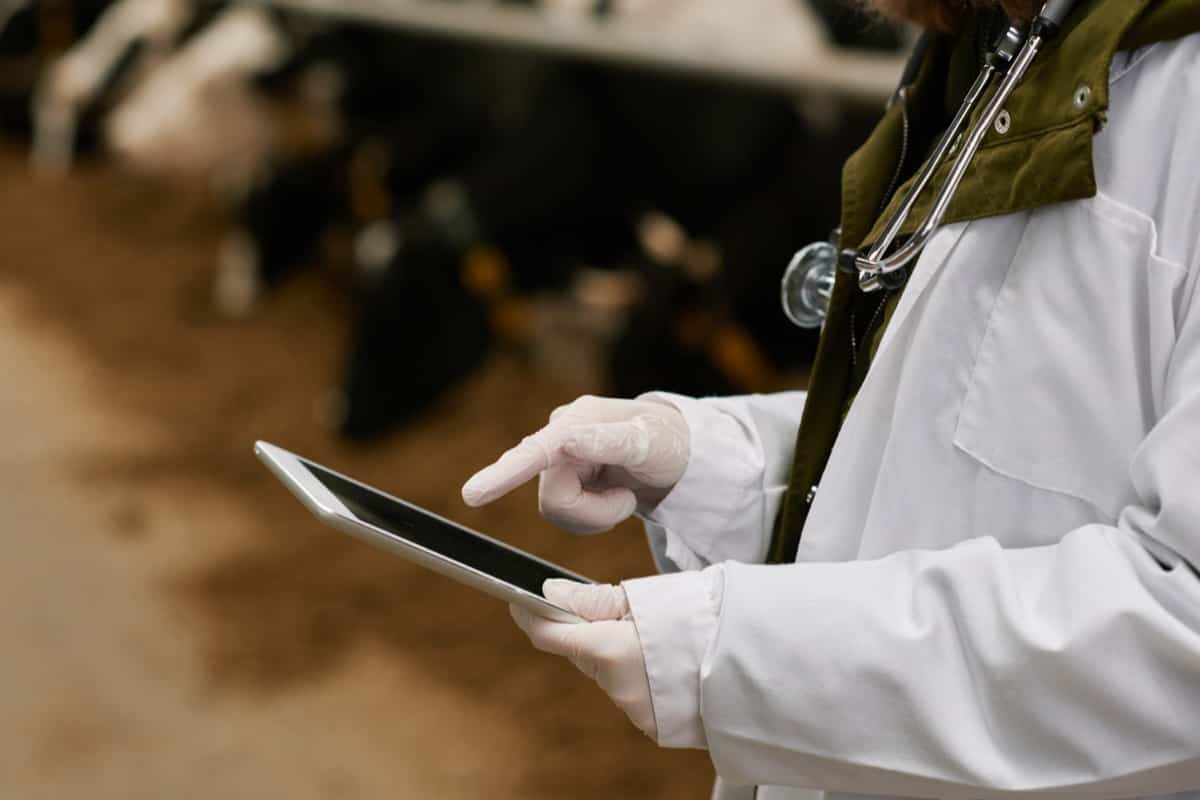
Public-Private Partnership
- Karnataka has been allocated 290 MVs to serve its extensive animal population of 289 lakhs through a Public-Private Partnership.
- An allocation of Rs 44.00 crores has been made to procure 275 new veterinary service vehicles, with 15 existing Pashu Sanjivini vans complementing the fleet.
Operational Costs
- Each MVU is staffed with a Veterinary Doctor, Livestock Inspector, and Driver cum Attendant and is equipped with necessary medicines and audio-visual screens.
- The operationalization cost per vehicle is approximately Rs 18.72 lakhs per year, shared with 60:40 ratio between the Central and State governments.
Impact on Farmers
- MVUs empower farmers and dairy owners to ensure timely healthcare for their livestock, increasing their income and improving their economic status.
- These units represent a significant step toward comprehensive animal healthcare in rural India, benefiting both animals and the farming communities.
Major Objectives and Components of the MVUs Program
The Assistance to States for Control of Animal Diseases (ASCAD) aims to control economically important and zoonotic diseases in livestock and poultry through immunization and strengthening veterinary infrastructure. Funding is shared between the central government and states, focusing on vaccination against canine rabies and control of endoparasites in cattle and buffaloes.
The National Project on Rinderpest Surveillance and Monitoring (NPRSM) ensures freedom status against Contagious Bovine Pleuro-pneumonia (CBPP) and other animal diseases. Professional Efficiency Development (PED) enhances the efficiency of veterinary professionals through Continuing Veterinary Education (CVE).
The Foot and Mouth Disease Control Programme (FMD-CP) prevents economic losses due to Foot and Mouth Disease and develops herd immunity in cloven-footed animals. The National Animal Disease Reporting System (NADRS) focuses on operationalizing all nodes established under NADRS, including MIS development, GIS-based Decision Support System, Disease Intelligence System, network connectivity, and events management.
The Peste des Petits Ruminants Control Programme (PPR-CP) aims to control and eradicate Peste des Petits Ruminants in sheep and goats through vaccination targeting susceptible animals. The Establishment & Strengthening of Existing Veterinary Hospitals and Dispensaries aims to establish new hospitals, strengthen existing ones, and introduce Mobile Veterinary Clinics (MVCs).
In case you missed it: Sustainable and Eco-friendly Strategies for Tick Control in Dairy Farming
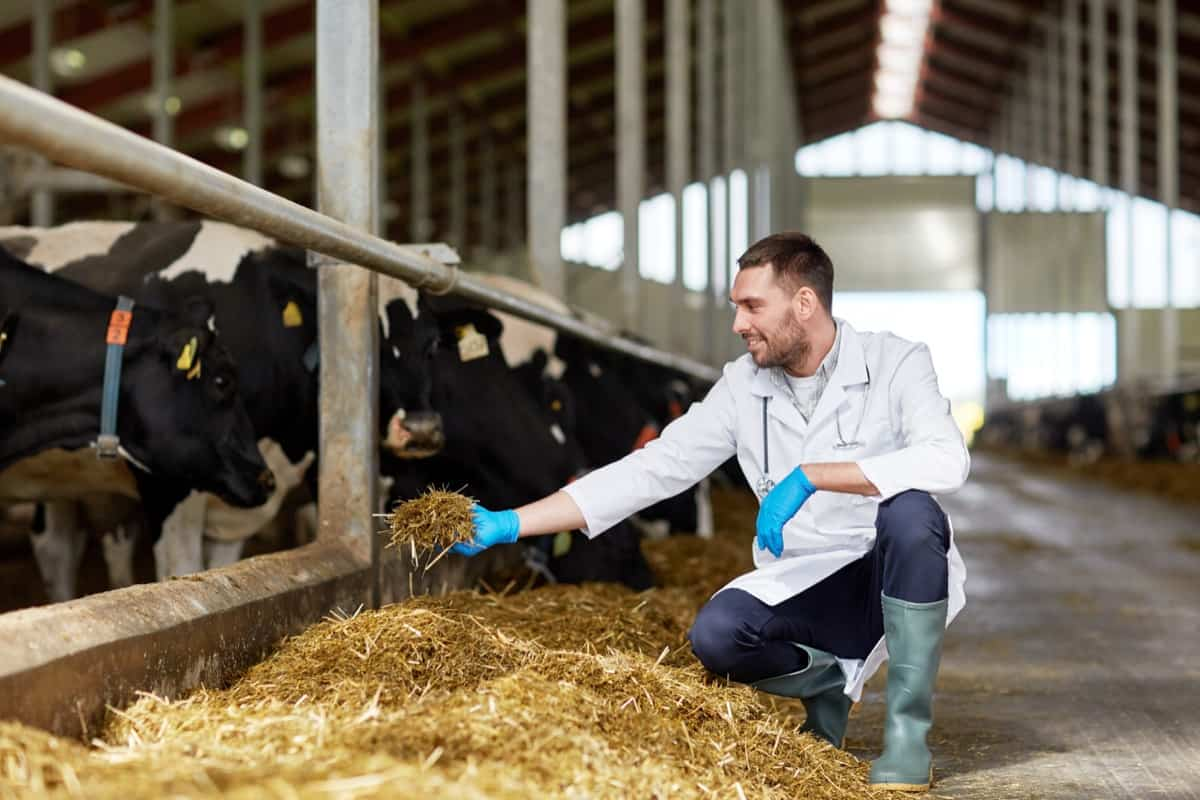
The Brucellosis Control Programme (Brucellosis-CP) focuses on vaccinating female calves and adult female bovines to control Brucellosis. The Classical Swine Fever Control Programme (CSF-CP) aims to control Classical Swine Fever with 100% central funding, initially focusing on Northeastern states.
Challenges Faced by Mobile Veterinary Units in India
Mobile Veterinary Units (MVUs) in India need help to provide essential veterinary services due to inadequate infrastructure, resource constraints, low farmer awareness, maintenance, and coordination. Inadequate road networks and difficult terrains in rural areas hinder their movement, while limited availability of professionals, medicines, and equipment affects service quality. Low awareness among farmers can lead to underutilization. Effective coordination between MVUs, call centers, and local authorities is crucial for timely service delivery.
Which states in India have successfully implemented Mobile Veterinary Units?
Telangana: Telangana launched 100 Mobile Veterinary Clinics at the Assembly Constituency Level in September 2017. These clinics are outsourced to experienced service providers, ensuring efficient service delivery. A 30-seated Call Centre with a toll-free number (1962) operates round the clock to provide immediate relief and suggestions to farmers.
Tamil Nadu: The state has introduced Animal Mobile Medical Ambulances in all districts to respond swiftly to emergencies in remote areas. A toll-free number, “1962,” connects farmers to this ambulance service. Veterinary Assistant Surgeons conduct village tours to provide on-ground support.
Karnataka: Karnataka has received approval for 290 Mobile Veterinary vehicles to serve its 289 lakh animal population. These vehicles operate through a Public-Private Partnership and have received funding to procure new veterinary service vehicles.
Madhya Pradesh: Madhya Pradesh has launched “Pashu Dhan Sanjeevani – 1962” to offer livestock owners doorstep veterinary care and treatment services.
Gujarat: Gujarat introduced the Karuna Animal Ambulance service, which expanded to all districts with 26 additional ambulances. The state also launched 460 Mobile Veterinary Dispensaries to cover over 4600 villages, ensuring the health security of livestock.
Odisha: Odisha’s Mobile Veterinary Unit, known as “Mukhyamantri Bhramyamana Prani Chikitsha Seva,” provides healthcare, breeding, and advisory services to livestock in remote villages. It also major a crucial role during natural calamities and public emergencies.
How do Mobile Vet Units reach Remote Villages and Tribal Areas?
- Call Center Coordination: Farmers in these areas can contact a dedicated toll-free number (e.g., 1962) to request MVU services.
- Strategic Deployment: MVUs are strategically stationed in locations that minimize travel time to reach remote areas quickly.
- Local Outreach: Veterinary assistants and professionals collaborate with authorities and communities to raise awareness about MVU services.
- Scheduled Visits: Regularly scheduled visits to these areas ensure consistent access to veterinary care.
- Emergency Response: MVUs are equipped to handle emergencies, providing timely care to distressed animals.
Are there any Government Schemes Supporting the Establishment of these Units?
The Indian government supports the establishment of Mobile Veterinary Units (MVUs) through various schemes. One notable scheme is the “Livestock Health & Disease Control Programme,” which includes a component called “Establishment & Strengthening of Veterinary Hospitals & Dispensaries – Mobile Veterinary Unit (ESVHD-MVU).” Under this financial assistance is provided to states and union territories for procuring and operating MVUs, ensuring that veterinary services reach rural and remote areas.
What Services do Mobile Veterinary Units Provide to Livestock Owners?
Mobile Veterinary Units (MVUs) provide essential services to livestock owners, including preventive healthcare, diagnosis and treatment, breeding and reproductive health guidance, health education on animal health, nutrition, hygiene practices, and emergency care. They administer vaccinations, conduct prophylactic treatments, diagnose and treat various ailments, guide breeding practices, and respond to emergencies to ensure the herd’s well-being.
In case you missed it: Maximizing Milk Production: Dairy Cow Nutrition on Different Lactation Cycles
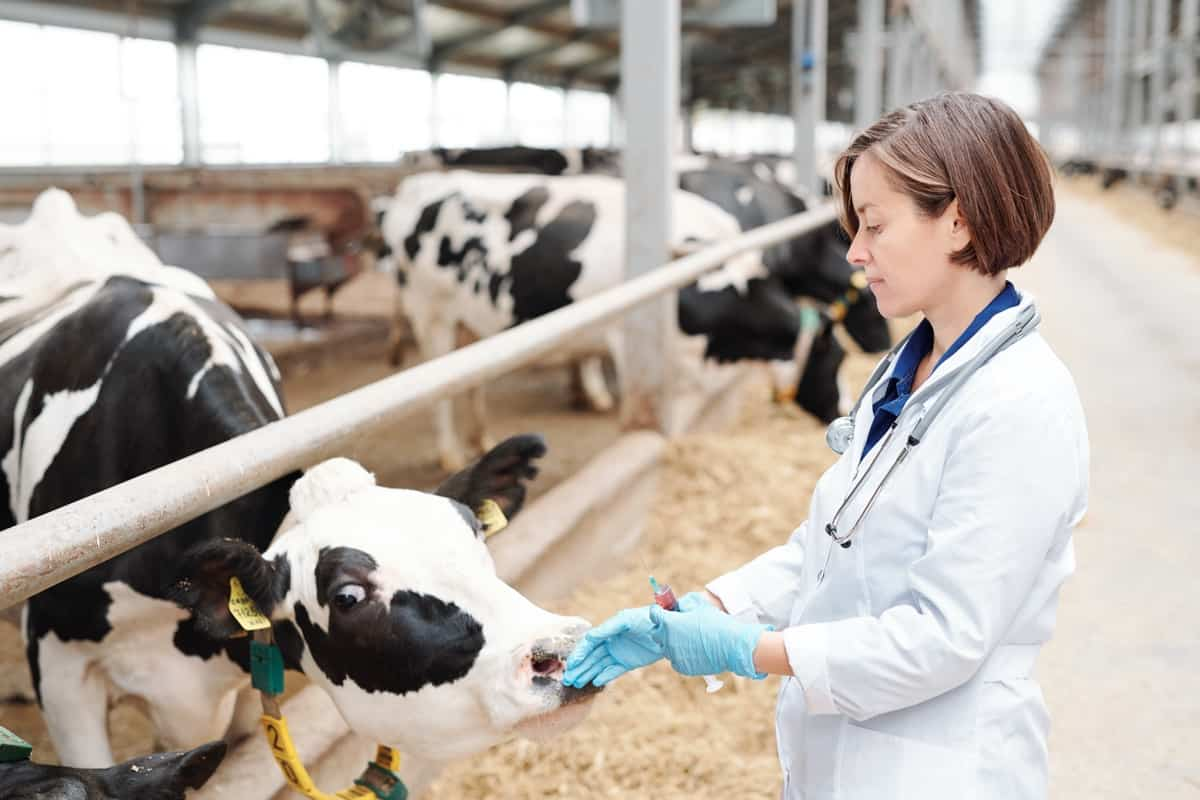
How can the Public Contribute to the Success of Mobile Vet Units?
The public can support the success of Mobile Veterinary Units (MVUs) by spreading awareness about their services, encouraging livestock owners to report animal health issues, collaborating with MVU teams to organize health camps and educational sessions, providing resource support through donations, and advocating for increased government funding and service expansion to reach more communities.
Conclusion
Mobile Veterinary Units (MVUs) are vital in India’s efforts to enhance animal health in rural and remote areas. These units bridge the veterinary services gap, offering livestock owners preventive care, treatment, and education. MVUs play a crucial role in improving livelihoods and agricultural productivity while ensuring the well-being of India’s valuable livestock population.
- 17 Gardening Mistakes to Avoid This Summer: For Vegetables, Flowers, Herbs, and Fruits
- Bahar Treatment in Pomegranate for High Quality and Yields: A Step-by-Step Guide to Implementation
- Mobile Veterinary Units in India: Implementation in States
- Moringa as Feed for Livestock: Moringa Fodder Crop Yield Per Acre
- National Beekeeping and Honey Mission (NBHM): Features, Schemes, and Benefits
- Management of Cutworms in Chilli: Prevention and Control With Organic, Chemical, Cultural Practices
- Best Fertilizer for Tinda: Organic, Natural, Homemade, NPK Ratio, When and How to Apply
- Whitefly Management in Cotton Crop: Symptoms, Control, and Best Insecticides for Cotton
- Best Fertilizer for Terrace Plants: Covering Vegetables, Fruits, Flowers, and Herbs
- 12 Best Compost Bins for Home in India with Price: Cheap for Indoors, Outdoors, and Kitchens
- Grapes Training Systems and Methods: A Comparative Analysis
- Best Fertilizer Jamun Tree: Organic, Natural, Homemade, Npk Ratio, When and How to Apply
- Polyhalite Fertilizers and their Role in Organic Farming
- How to Identify Fake Seeds: Key Differences Between Real and Counterfeit Seeds
- Best Fertilizer for Indian Gooseberry/Amla: Organic, Homemade, NPK Ratio, When and How to Apply
- Best Fertilizer for Bitter Gourd: Organic, Natural, Homemade, NPK Ratio, When and How to Apply
- Bangalore Method of Composting: Preparation Method, Benefits, and Disadvantages
- How to Check PM Kisan Status: Beneficiary Verification With Aadhaar Number and Mobile
- 15 Best Chaff Cutter Machines in India: For Dry, Green Fodder Cutting, and Price List Included
- Bermuda Grass Fertilizer Schedule: When and How to Apply in Winter, Summer, and Spring
- 20 Best Plants to Grow Under Oak Trees: Compatible Plants Under and Around Oaks
- Benefits of DAP Fertilizer: Price, Composition, How and When to Apply
- Profitable Thai Guava Farming in India: Yield, Profit Per Acre, Plant Price, 1 Acre Cost of Cultivation
- Top 19 Water Harvesting Techniques: What is Water Harvesting and Benefits of It
- Best 20 Lemon Varieties: Sweet, Large, and Rare High Yield Cultivars
- Top 15 Agro Based Industries in India: Best List for Agri Entrepreneurs
- Career Opportunities in Agribusiness Management: Top 10 Jobs After Agribusiness Management
- Top 20 Pumpkin Varieties to Grow in Your Garden: Best List of Pumpkin Varieties for High Profits
- How to Grow Cordyceps Mushrooms: Profitable Cultivation Practices and Cordyceps Mushroom Price
- Top 20 Lettuce Varieties to Grow in Your Garden: Best List for Backyard for Fall and Winter
- Top 20 Grape Varieties to Grow in India: List of Grape Varieties to Grow for High Profits
- Best Fruit Nurseries in Tamil Nadu: Top List of Saplings Supplier for High Yield and Profits
- Top 20 Apple Varieties in India: List of Apple Varieties to Grow for High Profits
- Advantages of Vegetative Propagation and Disadvantages of Vegetative Propagation: Examples
- Best Fruit Plant Nurseries in Maharastra: Sapling Suppliers of Hybrid and High-Yield Fruit
- 6 Best Grafted Fruit Plant Nurseries in Karnataka: Sapling Suppliers of Hybrid and High Yield Fruit
